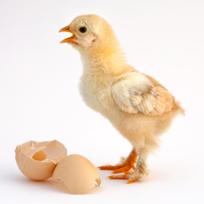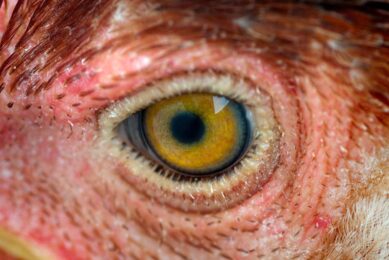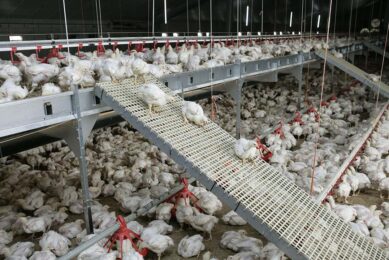Healthy intestinal bacteria already in chicken eggs

Many scientists have believed that birds acquire the intestinal bacteria that are a necessary for good health from their environment. However, a University of Georgia study finds that chickens are born with those bacteria.
According to lead author Adriana Pedroso, the finding could have important implications for the poultry industry as well as for food safety.
“Understanding the microbial ecology of the developing chicken is the first step toward producing healthy birds without antibiotics,” said Pedroso, a post-doctoral researcher in the UGA College of Veterinary Medicine.
“Understanding the microbial ecology of the developing chicken is the first step toward producing healthy birds without antibiotics,” said Pedroso, a post-doctoral researcher in the UGA College of Veterinary Medicine.
The study
Pedroso and her team incubated over 300 eggs and dipped them into a light bleach solution before extracting the embryos using sterile tools. DNA analysis revealed a diverse community of bacteria within the intestines of the developing embryos. The team hypothesize that the bacteria penetrate the surface of the shell to the egg white, which is then ingested by the developing embryo.
Reduce risk of food borne illness
Study co-author John Maurer, professor of avian medicine, said the findings could lead to better methods for promoting growth of poultry and for reducing the risk of food borne illness. He explained that as the poultry industry has moved away from the use of growth promoting antibiotics, it increasingly relies on administering probiotics – beneficial intestinal bacteria – to newly hatched chicks. Establishing a community of healthy bacteria in the birds is thought to make it more difficult for pathogenic bacteria to establish themselves, but studies on the effectiveness of probiotics have shown mixed results. He added that it appears now that the timing of probiotic administration is important.
“Currently, most probiotics are administered after the chicks have hatched,” Maurer said. “But our study suggests we might need to administer probiotics in ovo (in the egg) to get better results.”
Related links:
Join 31,000+ subscribers
Subscribe to our newsletter to stay updated about all the need-to-know content in the poultry sector, three times a week. Beheer
Beheer








 WP Admin
WP Admin  Bewerk bericht
Bewerk bericht